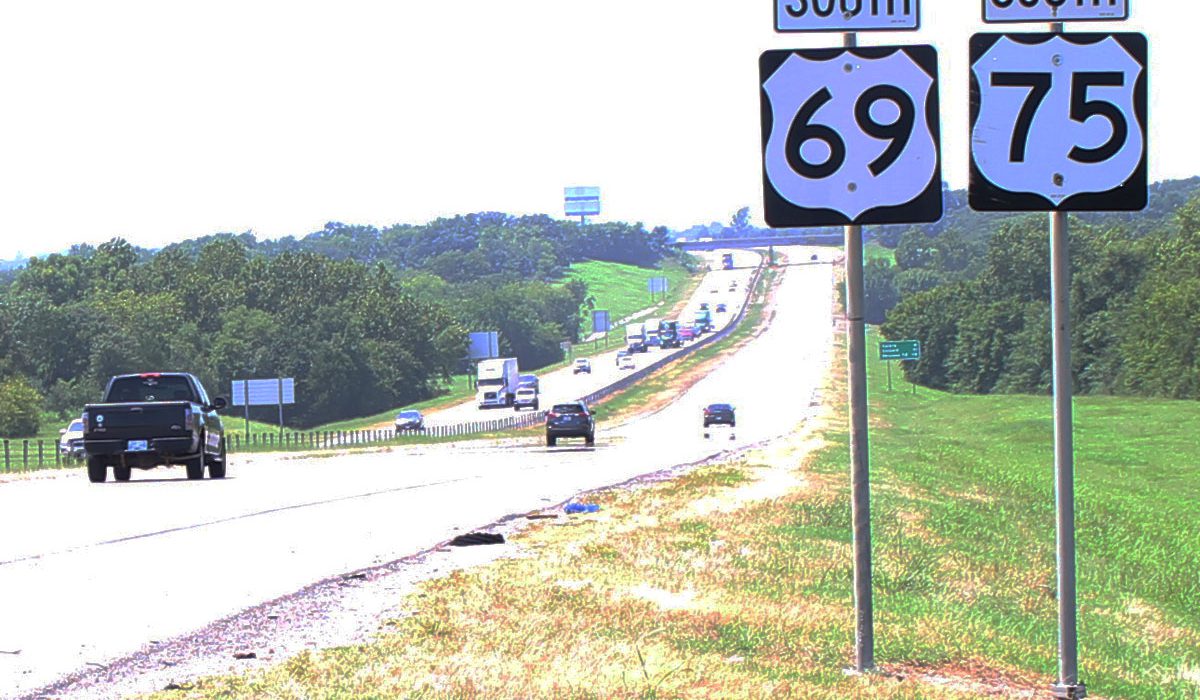By Joey McWilliams
There is new legislation that has been passed in Oklahoma this year designed to regulate driving on Oklahoma roads.
Signs have been and are being put up around the state that read ‘Slower Traffic Keep Right’ and above that ‘State Law.’
With the passage of House Bill 2312 in April and approval by the governor in May, the law has been amended regarding travel in the left lane of a four-lane highway.
Trooper Dwight Durant, the Public Information Officer for the Oklahoma Department of Public Safety, clarified the amendment.
And that the law is not a new one.
“The existing law is not (new),” Durant said. “The law as it is now says impeding the left lane. So if you are on the highway, you can travel in the left lane, the way the law is written right now. Until somebody comes up behind you and requires you to go into the right lane and let them pass, and then you can get back into the left lane.”
The current law, which is State Law 47-11-309 passed in 2009, reads:
“Upon a roadway which is divided into four or more lanes, a vehicle shall not impede the normal flow of traffic by driving in the left lane; provided, however, this paragraph shall not prohibit driving in a lane other than the right-hand lane when traffic conditions, or flow, or both, or road configuration, such as the potential of merging traffic, require the use of lanes other than the right-hand lane to maintain safe traffic conditions.”
HB 2312 amends the law to read:
“Upon a roadway which is divided into four or more lanes, a vehicle shall not be driven in the left lane except when overtaking and passing another vehicle; provided, however, this paragraph shall not prohibit driving in the left lane when traffic conditions, flow or road configuration, such as the potential of merging traffic, require the use of the left lane to maintain safe traffic conditions.”
This amendment to the law takes effect Nov. 1.
Durant said that state troopers will use discretion in pulling people over for violations.
“We’re not looking for the people in the left lane if you’re in congested traffic, say in the metro areas of Tulsa and Oklahoma City and other areas,” Durant said. “We understand that people will be in the left lane for a myriad of reasons.
“The enforcement on this thing is where public safety is concerned. What this is trying to do is trying to prevent accidents and trying to prevent road rage.”
He described a scenario that he said is typical of any turnpike between Oklahoma City and Tulsa or the interstates.
“Wherever where you’ve got a couple of semis and they’re both going about seven or eight miles an hour under the speed limit, they’re side by side, it’s taking one miles and miles to get around the other one. Behind those two semis, you’re going to have a dozen or so cars, they’re all going to be following too closely. They’re all going to be jockeying for position to get into the right spot to get around one or tow of these guys. That is a hazard. We have crashes that come out of these things.
“And we don’t want to admit it, but it also causes some road rage. We know it. We see it. We take the calls. We do the reports on them. And that is what this (amendment) is designed to stop.”
Durant also said troopers do understand that there are parts of the state in the south in which the right lane has been traveled on a lot more than the left lane and is rougher.
“If you’re down south somewhere and there is no other traffic and you’re in that left lane and it’s obvious to the trooper that the reason that you are over there is because it’s a smoother road, could the trooper pull you over? Yes. Is he going to if you get over into the right lane if he comes up behind you? No.
“It’s going to be obvious to him what you are doing. But you are in violation of the law. So it’s going to be a common sense thing. We’re going to see what’s going on.”
The amendment passed in the House, 89-2, with eight excused and passed in the Senate, 27-18, with one excused.
Violations of this law can result in a fine that is $235.25 plus whatever court costs the local jurisdiction may have.


